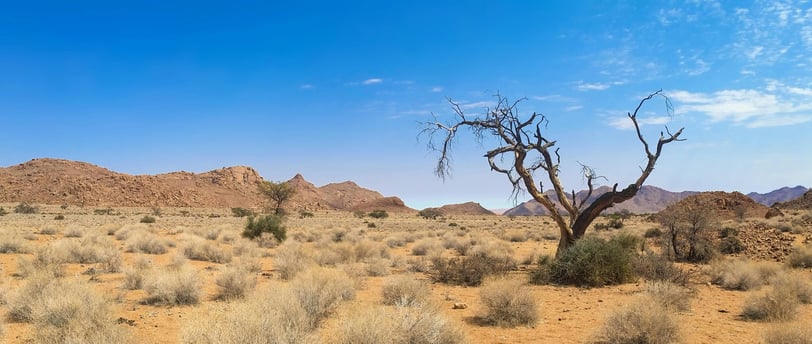Add your promotional text...
Why the Sahel’s Climate Crisis is Knocking on Ghana’s Northern Doorstep
Marvin Daniels
6/8/20252 min lesen


Understanding the Sahel's Climate Crisis
The Sahel, a semi-arid belt stretching across Africa between the Sahara and the savannahs, is facing a worsening climate crisis. Over the past few decades, the region has experienced rising temperatures (by up to 0.3 °C more than the global average), erratic rainfall, and repeated droughts - threatening traditional farming cycles and intensifying food insecurity.
This crisis is not contained within the Sahel’s borders. It’s steadily creeping south hitting Northern Ghana with increasing force. Rising temperatures and changing weather patterns here reflect a concerning trend: data shows the northern regions of Ghana are expected to heat up by 2.1–2.4 °C by 2050, while annual rainfall becomes increasingly unpredictable
This crisis manifests through increased temperatures, inconsistent rainfall, and recurring droughts—altering traditional agricultural cycles and threatening food security. The implications of this transformation extend far beyond the Sahel’s borders, reaching into the neighbouring regions, including Northern Ghana.
The Proximity of Ghana to the Sahel
Northern Ghana shares a border with Burkina Faso, a country that is part of the Sahel region. Climate changes that occur within the Sahel can have a domino effect on Ghana. As the livelihoods of communities in the Sahel are disrupted due to adverse climate conditions, many individuals and families are forced to migrate southward in search of resources, ultimately presenting a significant pressure on Northern Ghana’s ecosystems and economies.
Implications for Agriculture and Food Security
Given that Northern Ghana heavily relies on agriculture for sustenance and economic activity, the implications of the Sahel’s climate crisis cannot be ignored. As climate conditions worsen, food production is likely to decline due to droughts and unpredictable rainfall patterns. This scenario can lead to increased food scarcity, escalating commodity prices, and, ultimately, malnutrition among vulnerable populations.
Moreover, the influx of displaced individuals from the Sahel exacerbates the situation, straining already limited resources. Competition for arable land and water can lead to tensions between communities as they struggle to maintain their livelihoods amidst heightened scarcity.
Additionally, the effects of climate change are contributing to the degradation of land in Northern Ghana, making it less productive and harder to cultivate. The risk of desertification increases with each passing season, further compounding the challenges faced by farmers.
Mitigation Strategies for Northern Ghana
Addressing the repercussions of the Sahel’s climate crisis is essential for ensuring the well-being of the communities in Northern Ghana. Governments and NGOs must prioritize the development of climate-resilient farming practices. Initiatives like drought-resistant crops, sustainable land management, and efficient water use can aid farmers in adapting to the changing environmental conditions.
Furthermore, regional cooperation is crucial. Countries within the West African region need to collaborate on resources and strategies. Shared understanding and planning can facilitate better community responses to migration and resource allocation challenges posed by climate-driven displacement.
In conclusion, while the Sahel’s climate crisis is a daunting challenge, proactive measures can be taken to mitigate its impact on Northern Ghana. Through innovation, collaboration, and adaptive practices, it is possible to support both local and regional resilience against climate-induced challenges. It is vital for stakeholders across different sectors to recognize the interconnectedness of the issue and work toward sustainable solutions that foster stability and growth in the region.
Why does this Matters?
This isn't just another climate story, it’s a warning signal and a call to action. As the Sahel warms and dries, the well-being of millions in Northern Ghana hangs in the balance.
To protect these communities, investment in water resilience and adaptive strategies is critical. This includes:
Expanding irrigation systems
Empowering youth in climate-smart practices
Scaling soil restoration
Strengthening post-harvest storage and rural infrastructure
Together, these solutions can help hold back the advancing threat, securing food, livelihoods, and futures.
Write by: Marvin Daniels
